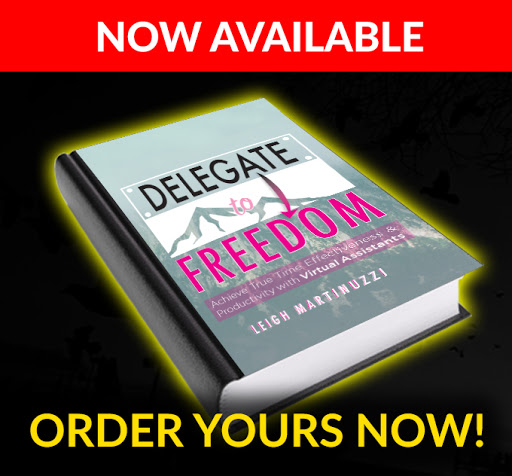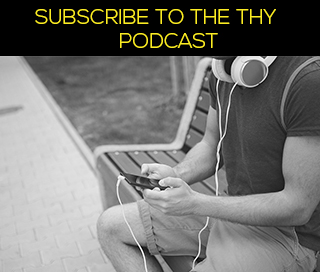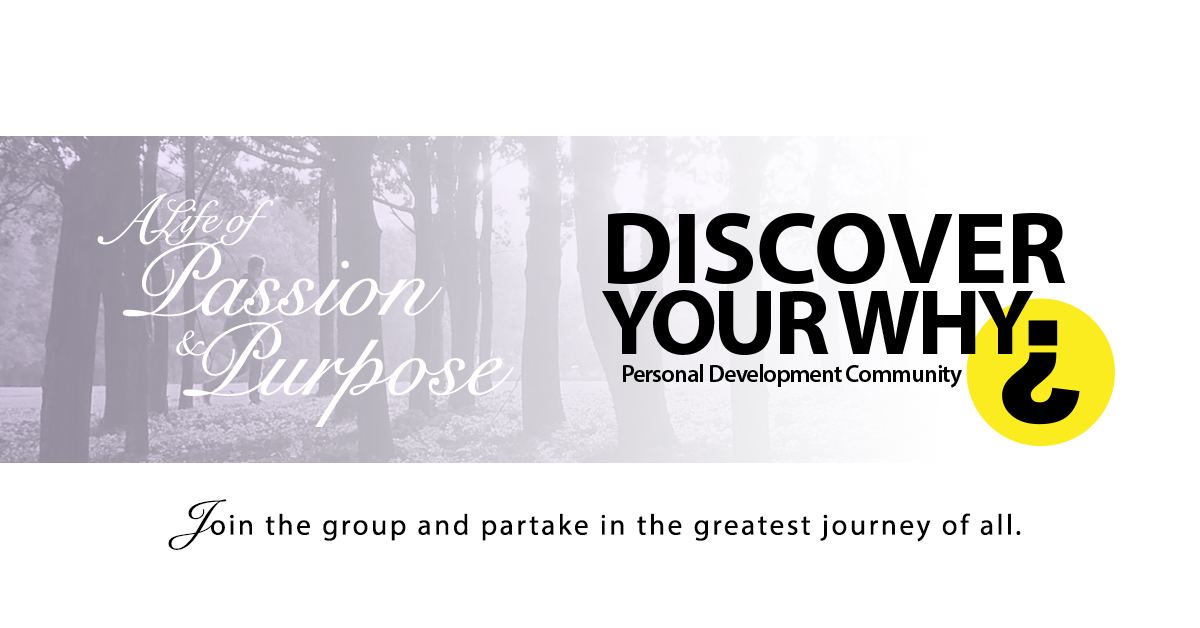
7 Rules to Guide You Through Procrastination
A few weeks I posted an article titled – Procrastination: Is Procrastination the Thief of Time?. This week I wish to highlight several rules I use to help guide me through times of procrastination. I hope they are of value.
RULE 1: When in a state of procrastination ask yourself the question, “Is this something of importance or can I eliminate it from all thought?”
If something is important to us, you wouldn’t think we would struggle to act upon it, right?
Putting off those things or importance whether for an hour, a day, a year we will certainly delay the fulfillment and joy it may bring into our lives. Procrastination can stop us from living our lives to their fullest, living our dreams and even prevent us from finding purpose in our lives.
The first reason we may find it hard to make a decision is due to the interruption of obstacles jumping in our way. For example, most of us can appreciate the need to work for monetary gain to upkeep a certain standard of living.
Support the family, pay the bills, buy food, save for travel or further education desires. In exchange for this monetary gain, we give our time, and because it this exchange consumes much of our time there is little left over to do other things. It leads to procrastination.
Our occupations often become our number one go-to excuse to not doing all else. Work commitments seem to get in the way. It’s useful for escaping outside commitments we don’t wish to attend, for example, a friends birthday celebration, but not so cool when it stops us from pursuing our passions.
An estimated 24% of Australian workers engage in their work, this figure about 13% worldwide. That suggests many of us don’t love or even like what we do. And yet we still sacrifice our time in doing what we love in favour of doing what we don’t love.
A lack of fulfilment at work usually results in a lack of fulfilment in our lives outside of work.
A disdained day at the office to return home to numb our lives by mindless activities – TV, drink, gossip, etc. Then we press replay on the following day. I hate to sound cynical, but this seems to be the reality for many of us in the modern world.
Each week we hit the fast-forward button on our working days only to escape into a mindless couple of days off. Spending time and energy procrastinating about all those things we want to do or wish to start but the chaos of our working lives prevents us from doing.
We must get clear on what’s important and what is not. Working to earn money to pay for our lifestyle is important but so are all those other things. We must not let this stop us from living the life we truly desire.
If you find yourself procrastinating because you are time poor, because or work, try to assess all your daily activities outside of work that is consuming your time but of little importance. Remove those things and replace with things you love.
RULE 2: If it is what you enjoy doing and if what you do is aligned with your values, don’t let fear stand in your way.
Other than weak excuses I find the next major obstacle preventing us from acting on something and therefore procrastinating is FEAR – false expectations appearing real.
I believe that all decisions that have meaning, importance, known or unknown benefit will always be met with some level of resistance or fear. There is uncertainty in all future moments and events. Making the wrong decision can prevent us from making any decision at all.
“Action breeds confidence and courage. Inaction breeds doubt and fear. If you want to conquer fear, don’t sit at home and think about it. Go out and get busy.” Dale Carnegie
Is there such thing as a right or wrong decision? Yes! But we are conditioned to believe that an incorrect decision represents a level of failure. We are celebrated and applauded when we get it right and judged, punished or ridiculed if we get it wrong.
Over time this builds. We increasingly hesitate to make decisions out of the fear we will get it wrong.
We will not become better decision makers by not taking action. We learn in experience and action. When we get it wrong as long as we apply that learning to future scenarios, the odds of getting it right will increase. All decisions followed by action can lead to progress.
“I am not discouraged, because every wrong attempt discarded is another step forward.” Thomas Edison
RULE 3: Understand the “what if” assumptions behind procrastination.
Let’s look at the example of wanting to change occupations. Here are some “what if” scenarios that I have had.
What will my family think of me if this doesn’t work out? What will my friends think? What if I get the promotion? What if I cannot make money to pay the mortgage? What if I am not good at it? How will my boss respond? What if they fire me before I have a new job?
The mind is a creative beast when it comes to assessing future possibilities. Usually these “what if” scenarios are false assumptions without merit. How can anything that has not occurred have merit? And usually, we focus on the worst-case scenarios, not the positive or best-case ones.
What if in times of procrastination we looked at both the positive and negative possible futures.
What if I succeed in my new chosen careers? What if I create more time freedom to do the things I love? What if I can make more money? What if it allows me to follow my passions? What if it allows me to travel more?
When assessing the possible futures, understand the likely reality of them. Ask yourself this question, “Why do I believe this possible outcome to be true?” Find the evidence to support it. In most cases there is no substantial evidence – assumptions have no proof.
Assumptions are usually our ego’s way of keeping us safe in our Self-defined reality. The ego doesn’t like discomfort. It doesn’t like to challenge it’s defined Self. The beauty is the Self can be whatever we wish it to be.
As uncomfortable as it may be in challenging who we are and what we are capable of when we take action we produce evidence. You may need a dose of confidence to push you through procrastination into action, but you will gain competence. At that leads to progress. That leads to less procrastination in the future.
RULE 4: When in procrastination, ask “why?”
What is the fundamental need driving the decisions and subsequential actions?
We are biological machines with drive and purpose. Our purpose is survival. At the most primitive level, all decisions we face are circle back to this purpose. Ultimately we do what we do for our longevity.
The dilemma we face in the modern age is that we have created many new needs that serve little purpose. When we feel a certain way, we act to try to bring balance to the system. We seek pleasures – natures way of indicating when something is good. We use pain to avoid what is conducive to life’s purpose.
Nowadays this has most of us chasing permanent pleasure fixes. We are beings the crave instant gratification versus delayed gratification.
For this reason, we need to ask ourselves, “Why?”
Why is this decision necessary? For what purpose does it serve? For what need will it satisfy? And is this need something worthy of my time and energy in pursuing?
Answering these questions is not the easiest of tasks. As we are creatures of habits and we favour pleasure and immediate satisfaction. It’s hard to move in an opposing manner to these. They have the upper hand and the power of making us act beyond our deepest will.
Such contemplation can also lead to further procrastination. “I want to do this, but I really think it’s probably not the best decision to make. However, if I move in the other direction I know it’s going to be painful.” And so the game of charades with the voices in our heads play out.
What decision will align you more closely with what you value?
What decision will take you closer to your ideal life and dreams?
What choice will produce the most positive rewards moving forward?
You still might find yourself making the lesser decision but, the more you contemplate these questions in times of procrastination, the more aware you will become. The more aware you become, the more likely you will make better decisions in the future.
“I conceive that pleasures are to be avoided if greater pains be the consequence, and pain to be coveted that will terminate in greater pleasure”. Michael De Montaigne.
RULE 5: Change the story we tell ourselves.
I wrote an entire article on how we go about doing that which you can read here – The Story We Tell Ourselves.
Without repeating myself let me just say this. A story is a creation. It is something we attach ourselves to give us a position or level of significance in this world. We develop our story through life’s experience and for this reason, we can change it by entering into new experiences.
If in procrastination you hesitate to take action even though you know deep down the decision and action you should take ask yourself, “What my inner or Self-narration that is preventing me from moving forward?”
Again, another hard question to answer. However, it is often that we don’t act because we don’t want to disrupt and break the comfort that our current story gives us, or we cannot see how this new direction can possibly fit and become our story.
My advice to myself is to take action. Let’s see how I can change my story. If you change your story, you change your reality. And it is all possible in new experiences.
RULE 6: Overcome resistance through repeated and disciplined action and behaviors.
We resist and fight and carry on based on all the reasons I have so far mentioned above. In resistance, we stop progress. We give up the opportunity to live this life as freely, fully and as happily as we possibly can. However, resistance is minimised in action.
It’s harder to resist something than to go with it. Try swimming upstream. Lifting weights at the gym. It takes more time and energy. Sometimes it’s easy to go with the flow.
In challenging resistance, we build up a level of tolerance. Over time it becomes easier. Keep trying to swim up that river, and it will become easier to do. Keep lifting those weights and you will become stronger.
It is usually the first step of first moments as we step into something new we give way to resistance. Push beyond this. It will become less of a challenge.
RULE 7: If you are procrastinating over something start the day off with that thing.
I am the clearest and at my peak level of effectiveness in the morning. It is a perfect time to deal with that which I am spending time in procrastination. I can better analyze my thoughts and more likely to take action because I don’t wouldn’t want to waste a day in indecision.
When we start the day off with the thing that challenges us most, that which we fear, or that which we wish to avoid, and do it the rest of our day will be greater. We will be more confident and efficient throughout the day with all proceeding tasks.
“If you have to eat two frogs, eat the ugliest one first.” Brian Tracy
Don’t start your day in avoidance doing all those easy or pleasure activities. You will end with very little accomplished or perhaps a lot of relatively insignificant things accomplished very well, but your life won’t reward you for that.
Do what you love but don’t let indecision, fear, pleasure and instant gratification and all else that is unimportant get in your way. Time is valuable. If you use time in procrastination wisely, it may lead to more purposeful decisions and less time wasted going forward.
“It is your moments of decision that your destiny is shaped,” Anthony Robbins
Further Reading and Resources
TED Talks: Ideas worth spreading
Elite Daily: The Voice of Generation Y
Four Hour Work Week: How to escape the 9-5, live anywhere and join the new rich.
The Minimalists: How to pursue a minimalist lifestyle and be happier.
Mind Hacks: Tips and Tricks for Using Your Brain
Rich Roll: Plantpowered Wellness Advocate
The Art of Charm: Build confidence, feel comfortable and networking differently.
The Art of Manliness: Encouraging men to be better husbands, fathers, brothers, citizens.
Tiny Buddha: Simple wisdom for complex lives.
Mind Body Green: Lifestyle media brand dedicated to inspiring you to live your best life.
Zen Habits: Find simplicity and mindfulness in life.
Creative NonFiction: “true stories well told.”
Barking Up the Wrong Tree: science-based answers and expert insight on how to be awesome at life.
The Positivity Blog: Practical articles on happiness, self-esteem, productivity and social skills.
FIND YOUR HIDDEN WHY with THE HIDDEN WHY (THW)
BUILD YOUR LIFE AROUND YOUR PASSION AND LIVE WITH PURPOSE
Sign up for free below and receive cool stuff from me each week + Plus a free copy of “The Four Pillars of Success”
In my weekly emails you will receive ideas, thoughts, learning’s and inspiration on:
- How to design a life that you want and live by your terms
- How to live a life with passion & purpose
- Methods, strategies, & techniques on life hacks
- Messages on how to better live your life
- We will also keep you up to date with fantastic interviews from THW podcast













Leave a Reply